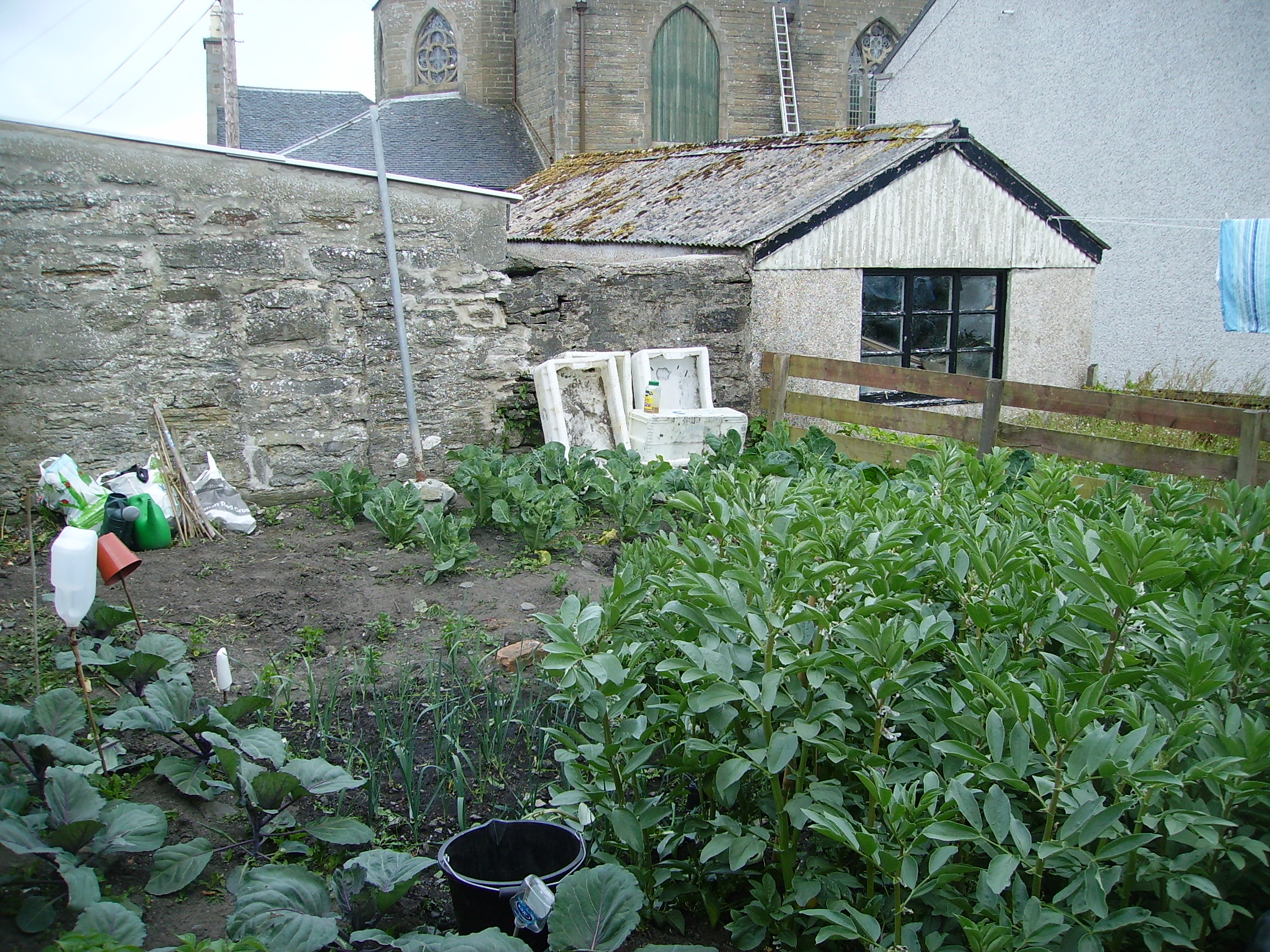
I spent the day away from the Internet and on the allotment getting to grips with the weeds which have demonstrated the irritating tendency to continue growing during the incessant rain which has kept me away. Long after suburban viewers imagined rolling about in the mud with Felicity Kendal, a raft of celebrity gardeners continue to make it look easy to the point that there is the expectation that a little light weeding and easy planting is pretty much all that is required.
This year, it was that for me, as seen above. After starting-off seedlings and bulbs and chitting the potatoes, I was able to pop stuff into the ground and watch benevolently as they grew. Previous years were not like that, as I had to shift paving and uproot weeds and shrubs which had been left untouched for the best part of 30 years.
Not that this year is going to be a bumper year, as the summer has been a bit of a yuck, eh? Total volume of rainfall has not been noticeably higher, but it has happened on most days under a dull and cold sky meaning little meaningful growth.
Of my four dozen strawberry plants, I estimate there will be a 25% yield if that; so I have cut my losses, and am leaving them for the birds. None of my initial sowings of two hundred beetroots appeared. At least a third of my blackcurrants look as if they will not ripen, and maybe half of my onions remain stunted: although my garlic planted last autumn mostly grew, my Japanese onions planted then refused to bulk.
My golden acre cabbages, which should almost be ready, are about only half way. I am not hopeful for my cauliflowers. My beans have grown rampant, but show little sign of appropriate pods.
The various potatoes have grown sufficiently to feed me until maybe late October, whereas last year I lasted until poorly stored crop began to rot in late January.
In the non-edible section, my larkspur started blooming immediately before St. Swithun’s Day when, last year, they were almost gone.
And, to top it all, an effing rabbit has found its way into the area for the first time any of the neighbours can remember.
Fortunately, good weather seems to be here, which should allow the later crops of leeks and winter brassicas a good growth.
Although I use minimal fertilizers not approved by the Soil Association, this is mainly because as an small-scale grower, I am able to pick-off pests or weed over the course of a couple of days. It is years like this that I am grateful for industrial agriculture which uses more advanced pesticides than the likes of copper sulphate or methods such as a blow torch to weed the onion patch, and sustains the great many people in this country who do not have access to a plot and will sustain me this year more than previously.
Anyone who fancies the idea of organic or non-GM farming should be welcome to do so on their own sweat or, if they have more money than know-how, pockets. What continues to baffle me, however, is when agricultural methods started to be considered a marker of leftwing or “progressive” politics.
When the public began taking note of GM in the 1990s, there were reasonable concerns about the available knowledge. As sound as the scientific knowledge appeared to be, it was untested and, entering into it with an open mind sort of thing, it was reasonable to conclude that direct alteration of plant genetic code should not be considered the same as, say, Norman Bourlag’s manipulation of cereal crops.
After two decades of tightly controlled research, however, the early fears of Frankenstein’s crops (Tm.) have not been born-out, yet opposition continues. It satisfies me that sites such as at Rothamsted Research in Harpenden are protected from the destructive designs of people whose greatest food worry is onions going from 19p to 30p per lb (maybe I am wrong about the specific prices, but remember I grow my own… usually).
Although, I do not know much about the group – Take the Flour Back – behind this failed destruction protest, their accompanying image of a loaf of bread morphing into a cow does not impress me; which I say in the sense that I think it is barking mad.